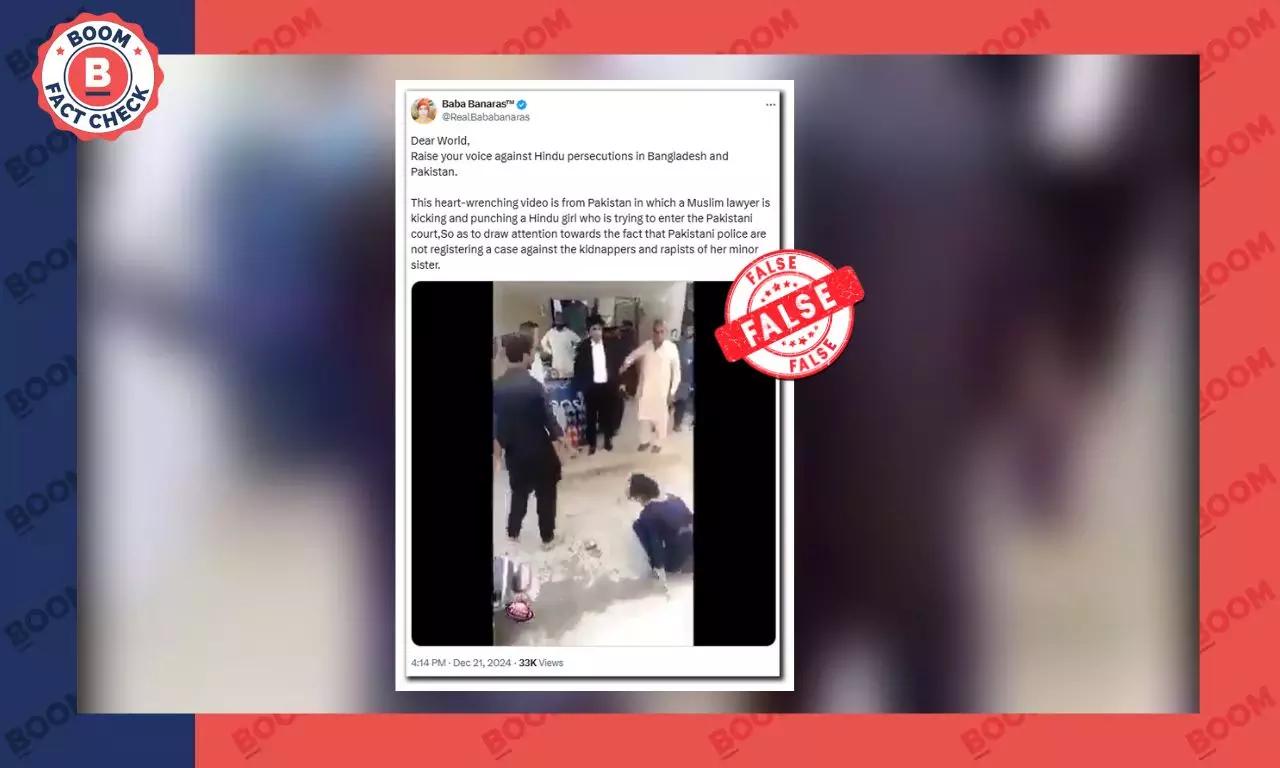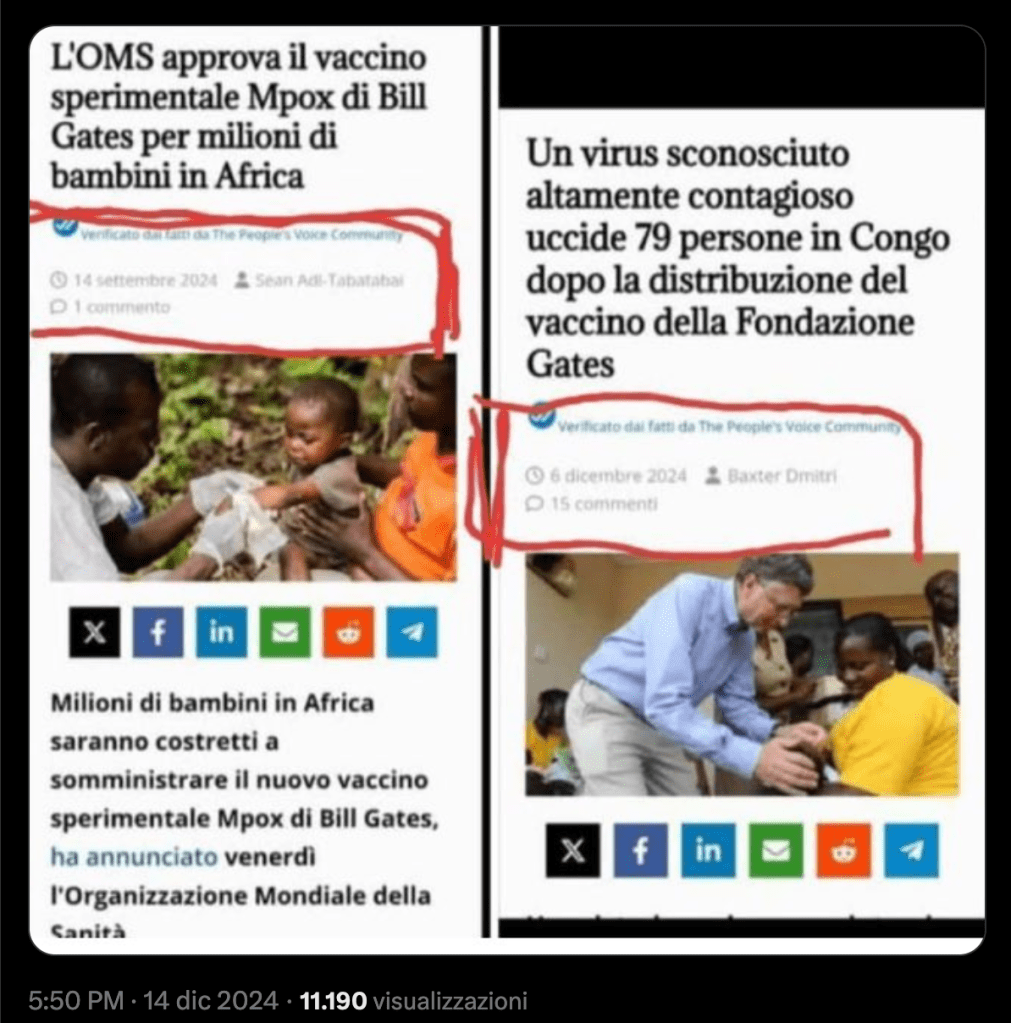
Este artículo estará disponible en español en El Tiempo Latino.
Quick Take
President Joe Biden pardoned his son Hunter Biden from serving time for gun- and tax-related crimes. But contrary to claims on social media, Hunter Biden’s gun charges did not stem from a 1994 “crime bill authored” by then-Sen. Joe Biden.
Full Story
President Joe Biden kept his son Hunter Biden from serving time for gun- and tax-related charges and other offenses “which he has committed or may have committed or taken part in during the period from January 1, 2014 through December 1, 2024,” when he issued a pardon on Dec. 1.
The pardon — which was a reversal of the president’s previous commitment not to offer his son clemency — sparked condemnation and some misleading claims online.
For example, Kim Klacik, a conservative commentator who ran unsuccessfully for Congress in 2020 and 2024, posted on X and Instagram, “In 1994, a crime bill authored by @JoeBiden locked Black men up for years for the same gun charge he just pardoned Hunter Biden for today.”
Another post on Facebook similarly said, “In 1994, a Crime Bill authored by Joe Biden passed Congress becoming a law that locked up 10’s of thousands of Black Men for years for the same crime he just PARDONED HUNTER BIDEN FOR!”
But Hunter Biden’s gun charges didn’t stem from the Violent Crime Control and Law Enforcement Act of 1994. Rather, he was charged and convicted under the Gun Control Act of 1968, Andrew Willinger, executive director of the Duke Center for Firearms Law, told FactCheck.org in an interview.
Biden, who was the Senate Judiciary Committee chairman at the time, played a key role in the drafting and passage of the Violent Crime Control and Law Enforcement Act. That law “increased mandatory minimum sentences for a number of criminal offenses, including some involving the use of firearms, and instituted a federal assault weapons ban,” Willinger said. “I’m not aware that it made any changes to the sentencing minimums or guidelines for Hunter Biden’s offenses of conviction.”
Hunter Biden hadn’t yet received a sentence for his gun-related convictions when the pardon was issued. Sentencing had been scheduled for Dec. 12. He faced up to 25 years in prison for the gun charges, according to the New York Times, although adding that he would likely “serve, at most, a small fraction of that time.”
In June, a federal jury in Delaware convicted Hunter Biden of three felony counts related to lying about using drugs on a form to purchase a gun.
He had been charged under sections 922, which lays out criminal acts related to gun possession, and 924, which lays out associated penalties, of Title 18 of the United States Code. Each was enacted in 1968, following the passage of the Gun Control Act.
“Generally, these charges are quite rare,” Willinger said. He noted that the primary charge for Hunter Biden was made under section 922(g)(3), which prohibits those who are addicted to drugs from possessing a gun, and is particularly rare.
According to a 2022 report from the U.S. Sentencing Commission, in fiscal year 2021 there were 6,549 people who were sentenced for convictions under section 922(g) and only 5.3% of them, or less than 350 people, had been convicted under the drug addiction subsection, 922(g)(3).
It’s usually difficult for prosecutors to prove that a person has been using or is addicted to drugs, unless they have prior convictions or admitted their drug use to police, Willinger said, explaining why the convictions are rare.
So, the lead charge that Hunter Biden was convicted of is rarely pursued and did not come from the 1994 crime bill that his father shepherded into law.
Editor’s note: FactCheck.org is one of several organizations working with Meta to debunk misinformation shared on social media. Our previous stories can be found here. Meta has no control over our editorial content.
Sources
Farley, Robert. “What Biden Left Out of Pardon Statement.” FactCheck.org. 6 Dec 2024.
White House. Press release. “Statement from President Joe Biden.” 1 Dec 2024.
U.S. Congress. H.R.3355 – Violent Crime Control and Law Enforcement Act of 1994. As adopted 13 Sep 1994.
Public Law 90-618. Gun Control Act of 1968. 22 Oct 1968.
Robertson, Lori. “Biden on the 1994 Crime Bill.” FactCheck.org. 12 July 2019.
Norwood, Candice and Mariel Padilla. “The complicated legacy of the 1994 crime bill.” The 19th. 16 Sep 2024.
Willinger, Andrew. Executive director, Duke Center for Firearms Law. Interview with FactCheck.org. 6 Dec 2024.
U.S. v. Robert Hunter Biden. Case no. 1:23-cr-00061. Jury verdict. U.S. District Court for the District of Delaware. 11 Jun 2024.
U.S. v. Robert Hunter Biden. Case no. 1:23-cr-00061. Indictment. U.S. District Court for the District of Delaware. 14 Sep 2023.
18 USC 922: Unlawful acts. uscode.house.gov. Accessed 10 Dec 2014.
18 USC 924: Penalties. uscode.house.gov. Accessed 10 Dec 2014.
United States Sentencing Commission. “What Do Federal Firearms Offenses Really Look Like?” Jul 2022.
The post Gun Charges Against Hunter Biden Didn’t Come from 1994 Crime Bill appeared first on FactCheck.org.

 5 days ago
29
5 days ago
29



